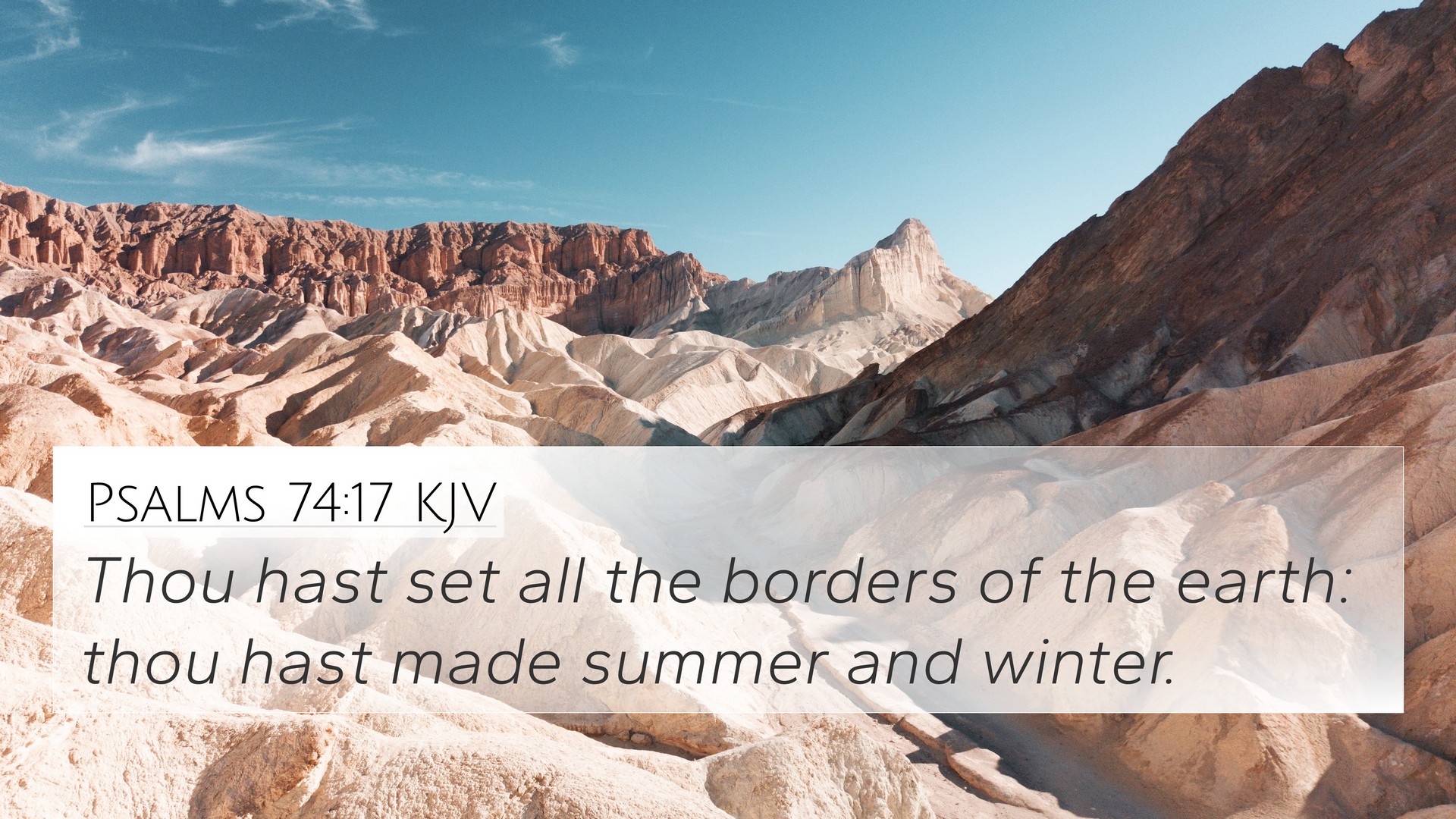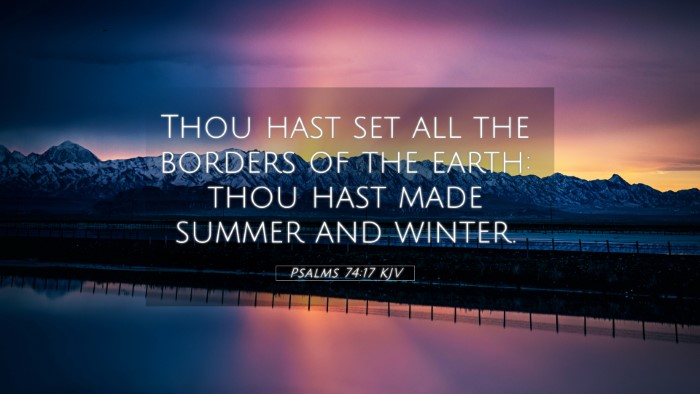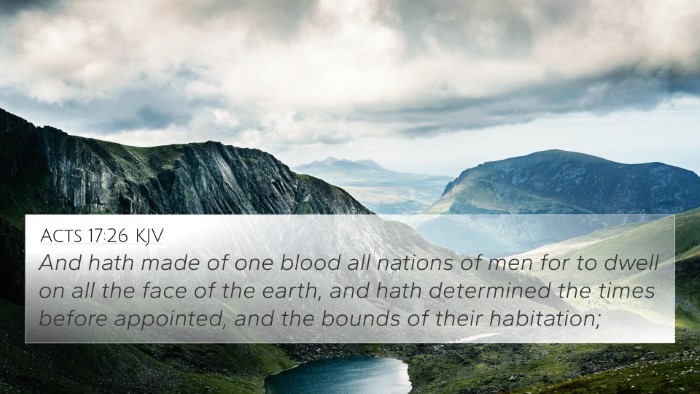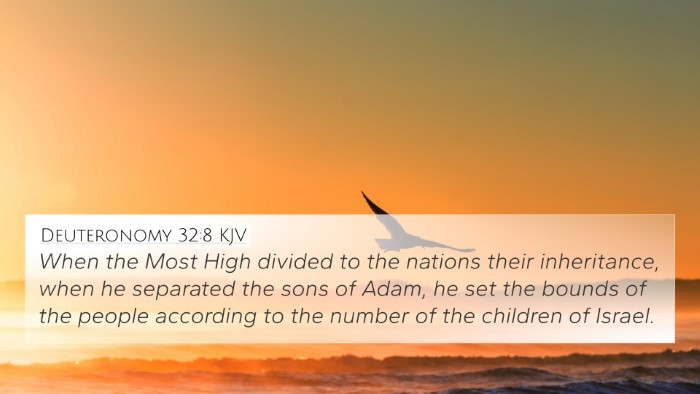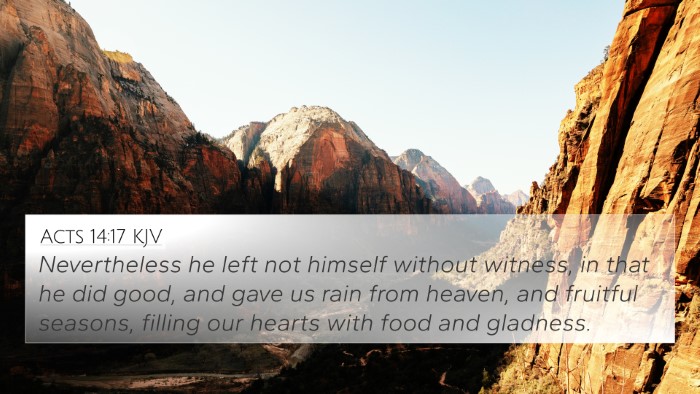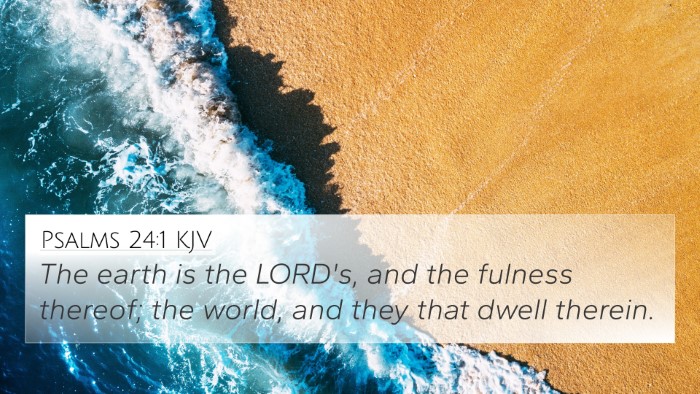Understanding Psalms 74:17
Verse: "Thou hast set all the borders of the earth: thou hast made summer and winter."
Summary of Meaning
The verse reflects on God's sovereignty over creation, highlighting His authority in establishing the natural order of the seasons. The psalmist acknowledges that God is the one who sets the boundaries of the earth and orchestrates the cyclical nature of summer and winter. This acknowledgment also implies a deeper understanding of the divine control over both nature and the history of Israel.
Commentary Insights
Matthew Henry
Henry emphasizes that this verse illustrates not only the physical boundaries set by God but also signifies His provision and care for His creation. The mention of summer and winter denotes God's control and the regularity of nature, which serves as evidence of His faithful governance. This understanding invites believers to trust in God’s sustaining presence through changing times.
Albert Barnes
Barnes notes that the "borders of the earth" refer to the literal physical divisions of land, but also hint at the spiritual boundaries God sets within the lives of His people. The cyclic seasons represent the permanence of God's natural laws and the assurance that He maintains the world’s order. This serves as a comfort for those facing turmoil or chaos, reminding them of God’s omnipotence.
Adam Clarke
Clarke further adds that the verse serves as a reminder of God’s omniscience and omnipresence. By stating that God has made both summer and winter, it indicates His wisdom in creating all aspects of life, both pleasant and harsh. Clarke also alludes to the implication that the changing seasons are meant to instruct humanity about perseverance and the hope of renewal.
Cross-References for Psalms 74:17
- Genesis 8:22: "While the earth remaineth, seedtime and harvest, and cold and heat, and summer and winter, and day and night shall not cease."
- Jeremiah 5:24: "Neither say they in their heart, Let us now fear the LORD our God, that giveth rain, both the former and the latter, in his season: he reserveth unto us the appointed weeks of the harvest."
- Ecclesiastes 3:1: "To everything there is a season, and a time to every purpose under the heaven."
- Psalms 104:19: "He appointed the moon for seasons: the sun knoweth his going down."
- Job 38:22-23: "Hast thou entered into the treasures of the snow? or hast thou seen the treasures of the hail, which I have reserved against the time of trouble..."
- Acts 14:17: "Nevertheless he left not himself without witness, in that he did good, and gave us rain from heaven, and fruitful seasons, filling our hearts with food and gladness."
- Psalms 36:6: "Thy righteousness is like the great mountains; thy judgments are a great deep: O LORD, thou preservest man and beast."
- Isaiah 55:10-11: "For as the rain cometh down, and the snow from heaven, and returneth not thither, but watereth the earth..."
- Romans 1:20: "For the invisible things of him from the creation of the world are clearly seen, being understood by the things that are made..."
- 2 Timothy 4:2: "Preach the word; be instant in season, out of season; reprove, rebuke, exhort with all longsuffering and doctrine."
Connections Between Bible Verses
This verse can be analyzed alongside various other scriptures to gain deeper insights into God's governance of the seasons and His promises. The connections between these verses illustrate consistent themes of God's providence, His temporal control, and the meaningful rhythms He has designed within creation.
Thematic Connections
- God as Creator: The repeated assertion of God’s role in establishing seasons (Genesis 1:14, Psalms 104:19).
- Human Response to Creation: Living in acknowledgement of God’s sovereignty reflected in our stewardship and worship (Ecclesiastes 3:1).
- The Nature of Hope: Seasons symbolize hope, renewal, and the cyclical nature of life (Isaiah 55:10-11).
- Divine Justice: The assurance of God's righteousness in governing nature (Psalms 36:6, Job 38:22-23).
